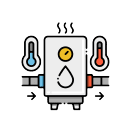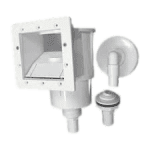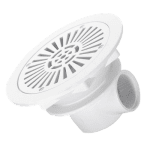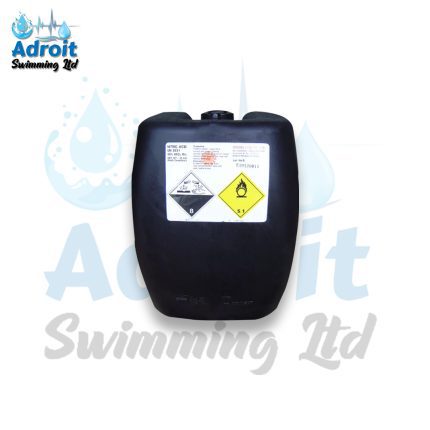Hypochlorous acid
Hypochlorous acid is a powerful, non-toxic disinfectant used in pools. It effectively kills bacteria, viruses, and algae, while being gentle on skin and eyes.
Swimming Pool Hypochlorous Acid: The Powerful Sanitizer for Clean and Safe Water
When it comes to maintaining a clean and safe swimming pool, the choice of sanitizers plays a crucial role. One of the most effective and innovative sanitizing agents is hypochlorous acid (HOCl). Known for its powerful disinfecting properties, hypochlorous acid is gaining popularity among pool owners who seek a more effective and gentle alternative to traditional chlorine-based treatments. Understanding what hypochlorous acid is, how it works, its benefits, and proper usage can help pool owners enhance their swimming experience.What is Hypochlorous Acid?
Hypochlorous acid is a weak acid that forms when chlorine dissolves in water. It is a natural substance produced by the immune system in humans and animals to help combat pathogens. In the context of pool sanitization, hypochlorous acid serves as a powerful disinfectant, effectively killing bacteria, viruses, and other harmful microorganisms that can compromise water quality. Unlike traditional chlorine, which often comes with strong odors and potential irritants, hypochlorous acid is much milder and safer for swimmers.How Does Hypochlorous Acid Work?
The effectiveness of hypochlorous acid as a sanitizer lies in its molecular structure. When added to pool water, hypochlorous acid targets and destroys pathogens by penetrating their cell membranes. This disruption of cellular processes leads to the rapid inactivation of bacteria, viruses, and algae, making it an efficient option for maintaining clean water. Additionally, hypochlorous acid operates effectively across a wide pH range, making it versatile for various water conditions.Benefits of Using Hypochlorous Acid in Swimming Pools
- Superior Disinfection: Hypochlorous acid is significantly more effective at killing bacteria and viruses compared to traditional chlorine. Studies have shown that HOCl can eliminate pathogens within seconds, making it an ideal choice for sanitizing pool water.
- Gentle on Swimmers: One of the standout features of hypochlorous acid is its gentle nature. It does not produce strong odors or irritate the skin and eyes like chlorine can. This makes it a suitable option for sensitive swimmers, children, and individuals with allergies.
- Environmentally Friendly: Hypochlorous acid is biodegradable and does not produce harmful byproducts when used in pools. This makes it a more environmentally friendly alternative to traditional chlorine treatments, contributing to a healthier ecosystem.
- Long-lasting Effects: Hypochlorous acid can remain effective in pool water for extended periods, helping to maintain sanitation between regular treatments. This stability reduces the need for frequent reapplication, providing a more convenient solution for pool maintenance.
- Reduction of Chloramines: Chloramines are compounds that form when chlorine reacts with organic matter in the pool. They are responsible for unpleasant odors and skin irritation. Hypochlorous acid helps to reduce chloramine levels, resulting in a more pleasant swimming experience.
How to Use Hypochlorous Acid in Swimming Pools
Using hypochlorous acid in a swimming pool is straightforward and can easily be integrated into regular maintenance routines. Here’s how to effectively use it:- Choose the Right Product: Hypochlorous acid is available in various formulations, including liquid solutions and generators that produce the acid on-site. Select a product that fits your pool size and needs.
- Test Water Chemistry: Before adding hypochlorous acid, test the pool water to ensure proper balance. Ideal pH levels should be between 7.2 and 7.8. Adjust alkalinity if necessary to optimize the effectiveness of hypochlorous acid.
- Application: If using a liquid formulation, carefully follow the manufacturer’s instructions for dosing based on your pool size. Distribute the hypochlorous acid evenly around the pool to ensure proper mixing.
- Run the Filter: After application, run the pool filter for several hours to help circulate and evenly distribute the hypochlorous acid throughout the water. This also helps to capture any contaminants that are neutralized during the process.
- Monitor Water Quality: Regularly test the pool water for free chlorine levels, pH, and alkalinity. Maintaining balanced water chemistry is crucial for optimal sanitation and swimmer comfort.
Precautions and Considerations
While hypochlorous acid is a safe and effective pool sanitizer, consider the following precautions:- Read Labels Carefully: Always follow the manufacturer’s instructions for proper dosage and application. This ensures safety and effectiveness in your pool maintenance routine.
- Store Properly: Store hypochlorous acid in a cool, dry place away from direct sunlight and other chemicals. Proper storage helps maintain the stability and effectiveness of the product.
- Avoid Mixing Chemicals: Do not mix hypochlorous acid with other pool chemicals unless specified by the manufacturer. Mixing can lead to adverse reactions and compromise water quality.


















